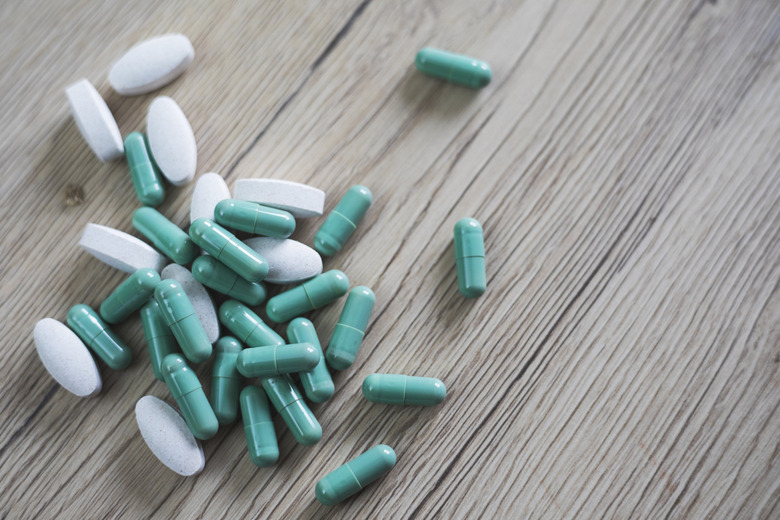Probiotics Are Expensive: 3 Ways To Help Your Gut Without Them
Probiotic supplements come in all shapes and sizes — from the drugstore brand to high-end capsules, there are more probiotics on the market than we could even begin to count. And that's not even considering the yogurts, kombuchas, and even cereals often imbued with them.
If you opt for the generic variety, you might be missing out on quality and efficacy. If you opt for the carefully engineered supplements, it'll cost you a hefty chunk of your paycheck.
Though your gut may not have the magical, life-transforming powers some advocates might lead you to believe, it does have some influence over your mental and physical health. Nicknamed the "second brain," your gut affects your mood, your immunity, your hangovers, and even your likelihood of disease. But you don't need an expensive pill to take care of it.
Instead of spending too many dollars on a pill you'll just forget to choke down before breakfast, try making one of these three simple but effective changes.
Destress
Feeling stressed out can mess with your appetite. Some people feel nauseous, others get ravenous, and some people forget they need to eat at all. People react to stress in different ways, but everyone has one thing in common — if you're feeling stressed, so is your stomach.
Cortisol, the body's stress hormone, can cause an inflammatory response in your gut. The good bacteria that live there have a hard time surviving through the inflammation; digesting food becomes less efficient and less regular.
To help your body get the nutrients it needs from your food — and to maintain a regular appetite — focus on reducing the amount of damaging stress in your day. Getting rid of stress has countless other health benefits, too; you're doing your whole body a favor by taking time to chill.
Drink More Water
Many experts recommend you sip on a glass of water with every meal — and no, it's not because it'll make you feel full faster. Water is a pivotal part of the digestive process. It helps break down food to make nutrients more accessible, and it helps the body get rid of waste.
Water's also a key precaution for anyone who drinks alcohol. While alcohol can make your gut an uninhabitable home for good gut bacteria, water can help mitigate the damage. You might think of a binge drinking session as like a hurricane hitting your digestion. After it wreaks its havoc, water is like your body's repair and supplies crew — the sooner you deliver, the better.
The only exception is red wine. Something about wine's polyphenols is attractive to your healthy gut bacteria. They only need a small amount, though, so be sure not to overdo it.
Eat More Fiber
Dietary fiber is the good bacteria's meal of choice. Feed them right and they'll help move things along at a nice, steady pace. Starve those bacteria and your digestion might stall — unless you're dying to spend more time in the john, you don't want that.
Overall, your digestive system is pretty good at doing its job — it's had some practice. But it does need certain nutrients to keep things moving properly. Eating fermented foods and a variety of nutritious meals helps things more than a tiny expensive pill ever will. Here are a few things you need to know about kimchi, kombucha, and other probiotic foods.
